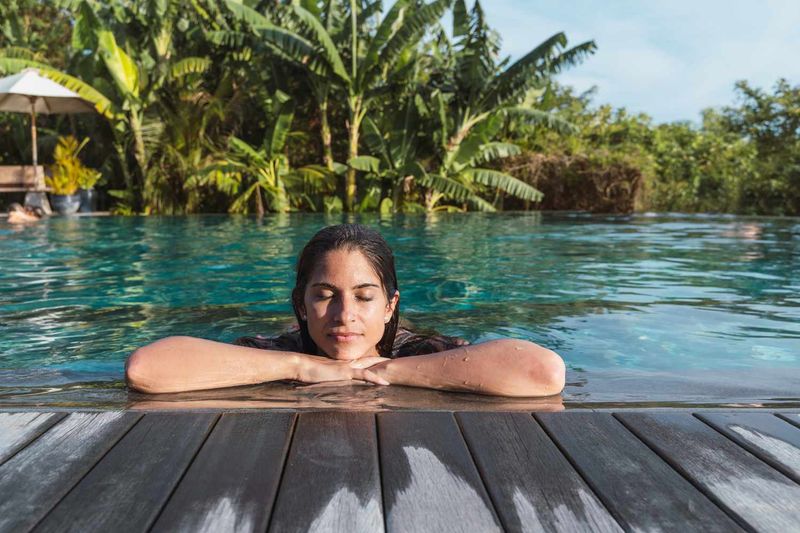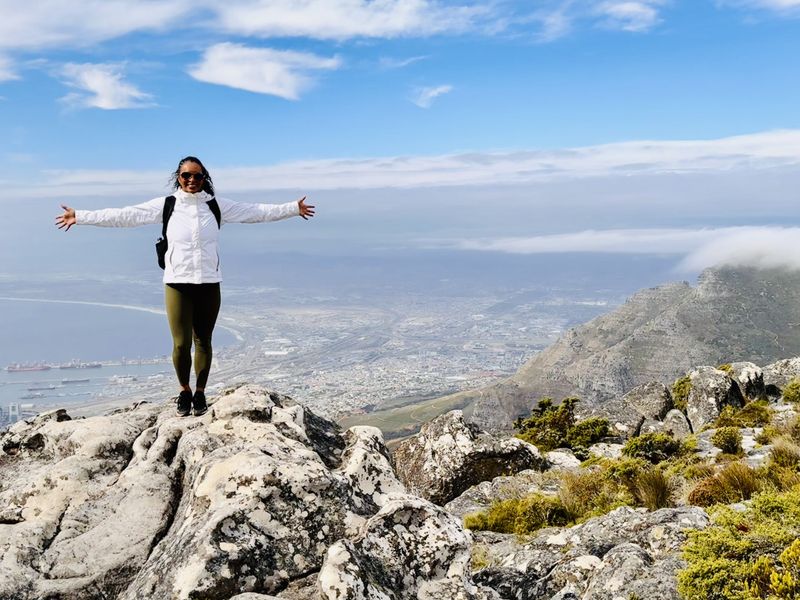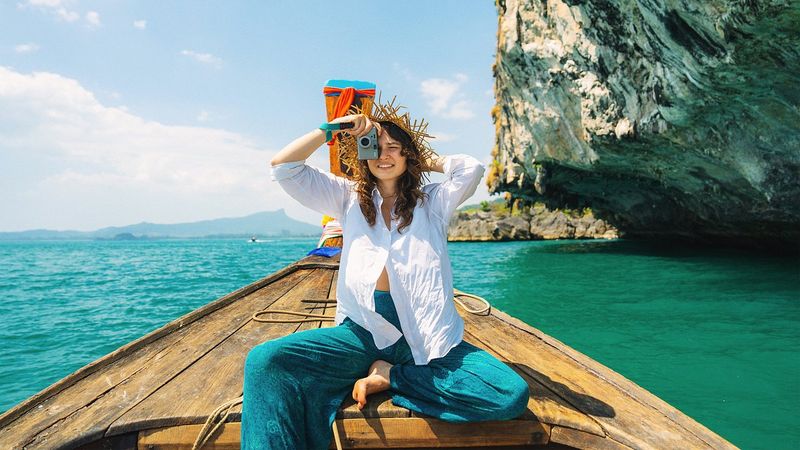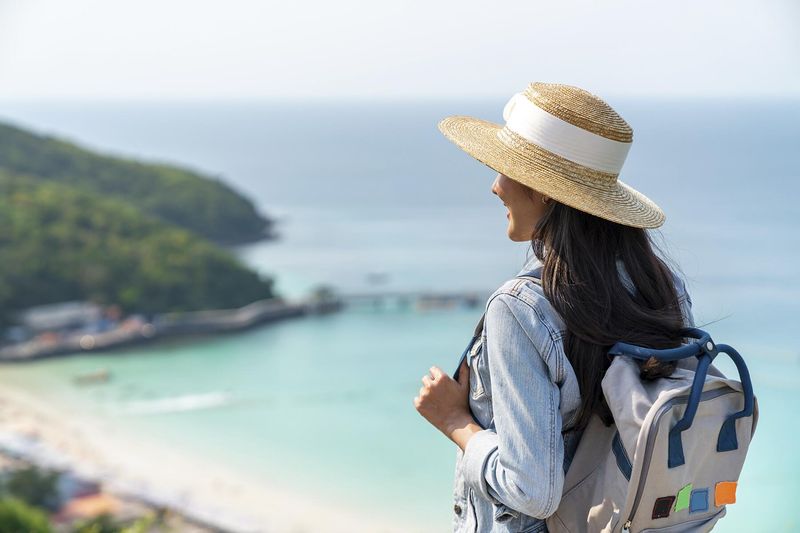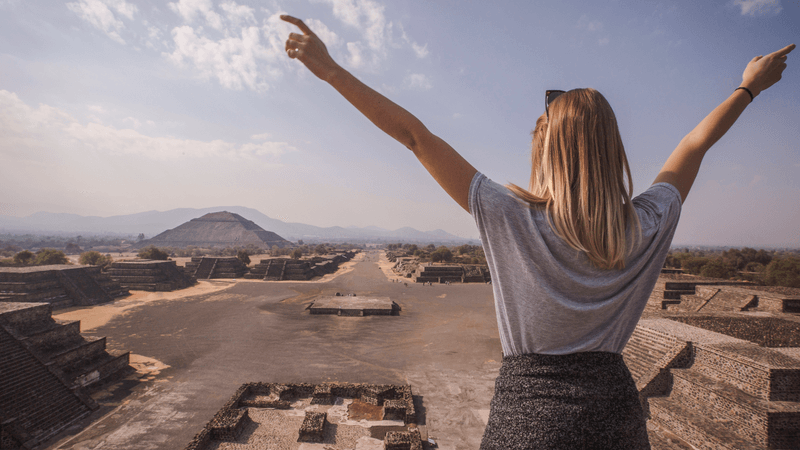More married women are packing their bags and heading off on adventures alone than ever before. This exciting shift challenges old ideas about what marriage should look like. Women are discovering that taking time for themselves through travel doesn’t weaken their relationships – it often makes them stronger. The growing trend reflects changing attitudes about independence, self-care, and personal growth within modern marriages.
1. Rediscovering Personal Identity
Marriage often blends two lives into one shared experience. Many women find their individual identities becoming less distinct over time.
Solo travel creates space for self-reflection away from daily roles and responsibilities. Without anyone else’s needs to consider, women reconnect with forgotten passions and interests.
The journey becomes a powerful reminder that being a wife or mother doesn’t mean abandoning who you were before those titles. This rediscovery brings renewed energy and perspective back to family life.
2. Guilt-Free Me Time
“I haven’t had a full night’s sleep in years,” confides Sarah, mother of three who recently took her first solo trip to a beach resort. The constant demands of family life create a never-ending cycle of caregiving.
Solo travel offers rare permission to focus entirely on personal needs. No meals to prepare, no schedules to coordinate, no emotional labor to perform.
Women return from these journeys refreshed rather than depleted. The quality of their presence improves dramatically when they’ve had genuine time to recharge without interruption.
3. Financial Independence Revolution
Economic shifts have transformed how married women view spending on themselves. With more women contributing significantly to household income, the old guilt around “splurging” on personal experiences is fading.
Modern marriages increasingly recognize separate discretionary funds for each partner. This financial autonomy creates freedom to invest in meaningful experiences without lengthy negotiations or justifications.
Solo travel represents a purposeful investment rather than a frivolous expense. Women are allocating resources to experiences that fuel personal growth and happiness.
4. Evolution of Supportive Partnerships
The definition of a good marriage has evolved dramatically. Mutual support for individual growth now ranks as highly as togetherness for many couples.
John encourages his wife’s annual photography retreat despite missing her. “She comes back with stories and excitement that bring new energy to our relationship,” he explains. This represents a fundamental shift from marriages where separate interests were viewed with suspicion.
Partners recognize that supporting each other’s independence strengthens their bond rather than threatening it. The most secure relationships make room for individual journeys alongside shared ones.
5. Improved Safety Infrastructure
Technological advances have transformed the safety landscape for women travelers. GPS tracking, emergency alert apps, and instant communication with loved ones provide reassurance that wasn’t available a decade ago.
The tourism industry has responded to this growing market with women-focused accommodations, tour groups, and transportation options. Many hotels now offer female-only floors with enhanced security features.
Online communities connect solo female travelers, creating networks of support and information sharing. These practical improvements address legitimate concerns without limiting women’s freedom to explore.
6. Mental Healing Journeys
Constant multitasking takes a serious toll on mental health. Many married women report feeling perpetually scattered, with attention divided between work, home, and relationship responsibilities.
Solo travel creates mental space impossible to find at home. The simple act of focusing completely on one experience at a time becomes profoundly therapeutic.
Mountains don’t make demands. Oceans don’t need emotional support. Nature offers healing presence without expectation, allowing women to process complex emotions and thoughts at their own pace. This mental clarity becomes a form of preventative healthcare.
7. Pursuing Unshared Passions
Different interests don’t have to create relationship tension. Maria’s husband hates museums but loves her stories about the art exhibitions she visits during solo trips.
Women are embracing travel experiences their partners would find boring or uncomfortable. Yoga retreats, literary festivals, cooking classes, and historical tours become more enjoyable without managing someone else’s disinterest.
These passion pursuits deepen personal fulfillment while eliminating the compromise fatigue that builds in relationships. No one feels dragged along or guilty about the other person’s boredom.
8. Digital Connection Revolution
Remember when international calls cost a fortune? Today’s technology has transformed how families stay connected during travel.
Video calls make bedtime stories and morning check-ins possible from anywhere with wifi. Photo sharing apps let women instantly share discoveries with partners and children, creating a sense of shared experience despite physical distance.
This connectivity eases practical concerns about being unreachable during emergencies. The psychological comfort of easy communication makes solo travel feel less like a complete separation and more like a temporary physical distance with emotional closeness maintained.
9. Social Media Inspiration Wave
Scrolling through Instagram, Ellen saw photos of her college friend traveling solo through Portugal. “If she can do it, why can’t I?” she wondered.
Online communities dedicated to married women travelers provide practical advice alongside emotional encouragement. Seeing others navigate the logistics and emotions of solo travel makes it feel achievable rather than intimidating.
These digital spaces normalize the experience and provide roadmaps for women considering their first independent journey. The shared stories create a sense of community that extends beyond geographic boundaries.
10. Milestone Celebration Freedom
Life transitions deserve meaningful acknowledgment. Solo travel offers a powerful way to mark significant milestones on one’s own terms.
After beating cancer, Lisa hiked Machu Picchu alone – something she’d dreamed about for years. Women are choosing solo adventures to celebrate career achievements, birthdays, empty nests, and personal victories.
These journeys become ceremonies of passage, creating clear demarcations between life chapters. The symbolism of navigating new territory parallels the internal transitions being honored.
11. Confidence Building Adventures
Something transformative happens when a woman successfully navigates unfamiliar territory alone. Each challenge overcome – from language barriers to transportation puzzles – builds practical confidence.
This newfound self-assurance extends far beyond travel skills. Women report speaking up more at work, setting clearer boundaries, and approaching problems with greater creativity after solo travel experiences.
The empowerment comes from proof of capability rather than just theory. Having concrete examples of personal resourcefulness creates a reference point for tackling future challenges in all areas of life.
12. Breaking Gender Expectation Chains
“Everyone acted like I was abandoning my family!” laughs Rebecca about reactions to her first photography trip. Society still judges women’s independence differently than men’s.
Each woman who travels alone helps normalize the idea that wives and mothers deserve adventures of their own. This quiet revolution challenges deeply ingrained expectations about women as perpetual caregivers.
The personal becomes political as these individual choices collectively reshape cultural narratives. Women are reclaiming the right to exploration without apology or excessive justification.
13. Mindfulness Over Multitasking
Constant juggling of responsibilities creates a fractured attention pattern. Many married women report rarely experiencing full presence in any single moment.
Solo travel forces a different relationship with time. A simple meal becomes a sensory experience rather than a rushed necessity. Surroundings come into sharper focus without the distraction of conversation or others’ needs.
This practice of deep attention becomes a skill women bring home. The ability to fully inhabit a moment – whether with family or alone – represents a precious gift in our distracted age.
14. Modeling Independence for Children
Children learn more from what we do than what we say. Mothers who travel solo demonstrate powerful lessons about autonomy, courage, and self-care through direct example.
“My daughter now talks about the countries she’ll visit someday,” shares Michelle, who takes annual solo trips. Young girls especially benefit from seeing women prioritize their own adventures rather than living solely through family experiences.
These mothers are raising a generation with healthier expectations about relationships and identity. The impact extends far beyond the immediate family as children share these alternative narratives with peers.
15. Relationship Renewal Effect
Absence really does make the heart grow fonder. Couples report renewed appreciation and reduced irritation following periods of separation.
The space creates room for missing each other rather than taking presence for granted. Small annoyances that had grown through familiarity fade in importance after time apart.
Solo travel prevents the relationship from becoming the sole source of fulfillment and stimulation. Women return with fresh perspectives and experiences to share, creating new conversation topics and mutual curiosity that reignites connection.


